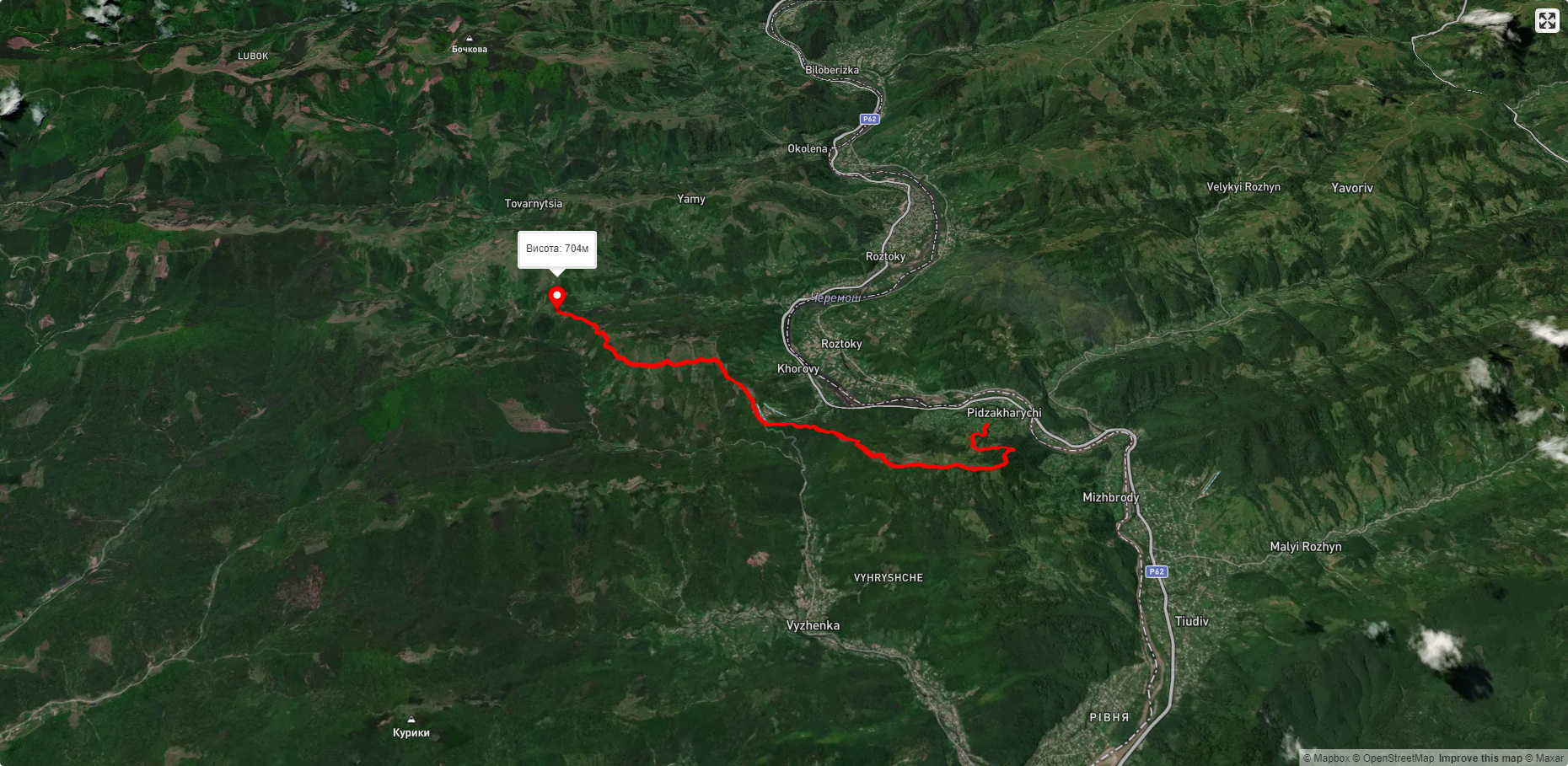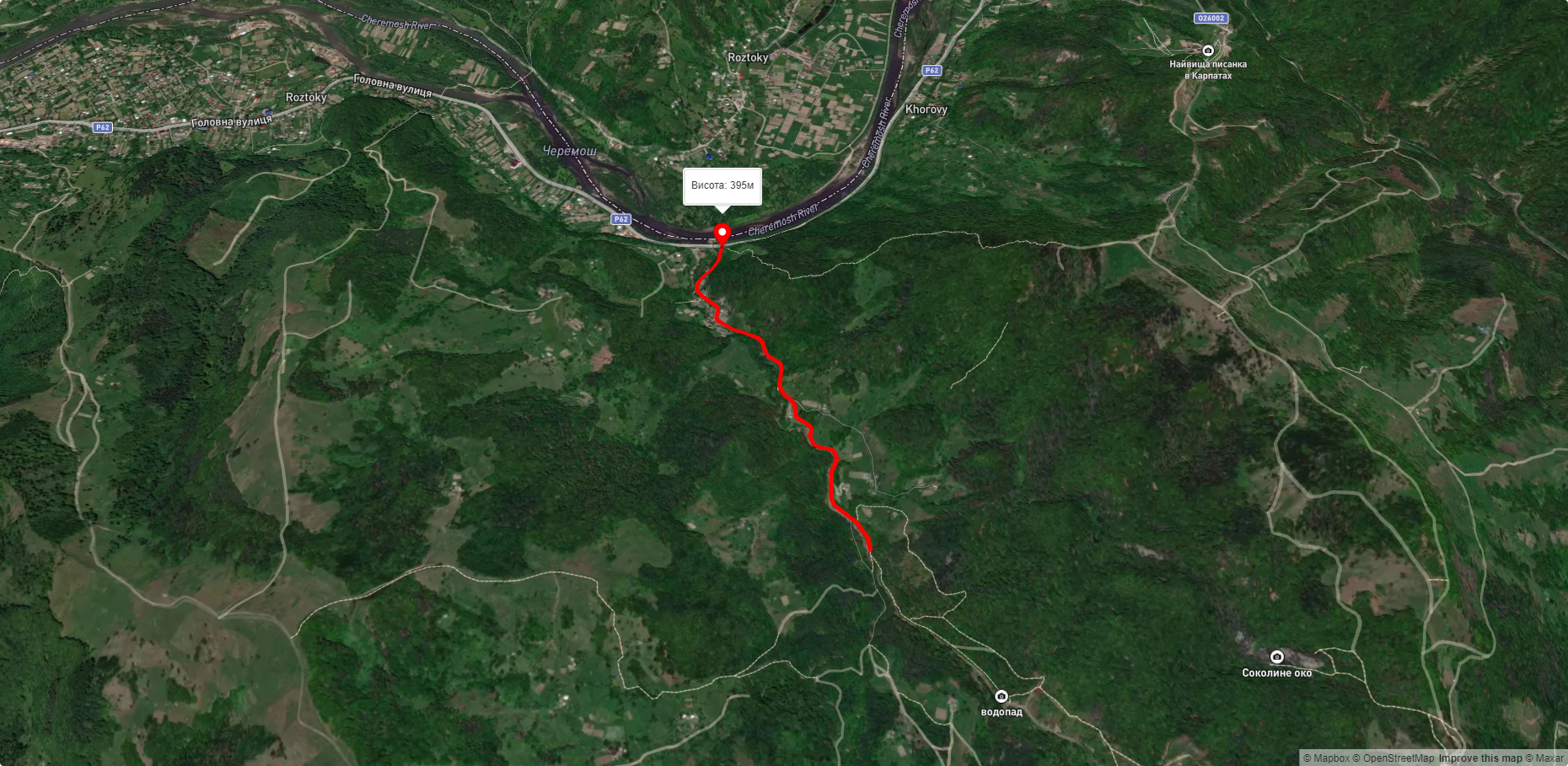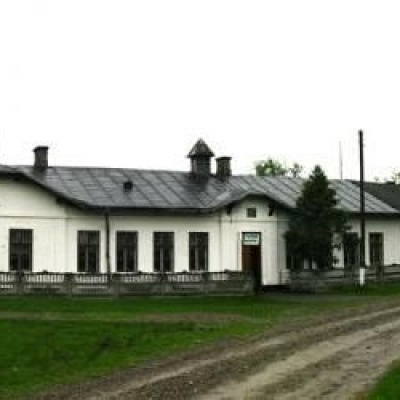Rusnak Museum, Dubivtsi
The small village of Dubivtsi, located in the Kitsmanivsky district of Chernivtsi region, became famous all over the world because one of the best voices of Ukraine, the famous opera singer Orest Rusnak (1895-1960), was born here. In memory of the outstanding native of the village, its residents opened the Rusnak Memorial Museum, which will introduce you to this extraordinary personality of Bukovyna.
The tenor singer was born into a priest's family. His career began in a local church, where he sang in the choir. In 1923 he graduated from the Prague Conservatory and continued his education in Milan. He was a leading voice in opera productions throughout Europe. Since 1924 he has performed in Koenigsberg, Graz, Munich, Vienna, Berlin and other cities. In 1928, the singer came to Bukovyna and gave two concerts in the city theater. He performed operas by Puccini, Rossini, and Verdi. He also often staged and performed operas by Ukrainian composers, including Volodymyr Lysenko. He was warmly welcomed in many cities of Ukraine.
The famous world-class opera singer was born into a large family of small noblemen, the Rusnaks, in the village of Dubivtsi, Kitsman region. His father Manoliy Rusnak served as a church sexton and had remarkable musical abilities, which were inherited by his three sons, Orest, Denys, and Nestor. When his eldest son Orest grew up, he was sent to the clerk's school at the Residence of the Metropolitans of Bukovyna and Dalmatia in Chernivtsi. He then continued his studies at the Chernivtsi Teachers' Seminary, where the choir had the best reputation. The First World War prevented 19-year-old Orest from graduating from the seminary and threw the gifted young man far from his home. He was first mobilized into the Austrian army, where he served until the collapse of the Austro-Hungarian Empire.
In 1918-1920, Orest Rusnak participated in the fighting of the Ukrainian Revolution on the Ukrainian-Polish front, during which he was imprisoned in an internment camp in the Czech Republic. There, with the help of his comrades, Orest managed to leave the military service and go to Prague to enter the Prague Conservatory. The talent of the Bukovynian attracted the attention of Professor Egon Fuchs, and he took fatherly care of his student. While still a student at the conservatory, Orest was allowed to sing at the Bratislava Opera in parallel with his studies. After graduating from the Conservatory, it was Professor Egon Fuchs who made a great deal of effort to sign Orest Rusnak's contract with the Königsberg Opera, where the 1924 graduate made his debut in Puccini's La bohème. The singer's first performance on the professional stage brought him great popularity. The German press, in particular the Königsberg Zeitung, wrote: "Orest Rusnak's performance garnered a storm of applause", "Orest Rusnak's invitation is a blessing for the theater", because "this singer has real "gold" in his throat and brings glory to the theater with his performances". Theater critics did not skimp on colors, describing the extraordinary voice and great success of the audience favorite, calling him "Ukrainian Caruso," "a young Ukrainian who has a God-given tenor voice of the sweetest sonority."
With his first high-profile success, the 30-year-old soloist of the Königsberg Opera, Orest Rusnak, immediately gained the right to perform such major roles as Raoul in J. Meyerbeer's Huguenots, Arnold in Rossini's Wilhelm Tell, and others. In 1925, Rusnak married the niece of the director of the Königsberg Opera House, Elisabeth Gerlach, and went to Milan to attend a good school of Italian singing and learn the language...
Despite his great success on the world stage and his laurels abroad, Orest Rusnak was very homesick. Wherever the singer was thrown by fate, he never forgot his native Bukovyna and visited his native land as soon as possible. In 1926, he gave his first big concert in Chernivtsi, which took place in the hall of the Musical Society. In the first part of the concert, he sang Ukrainian compositions, and in the second part he performed several Romanian songs and arias from popular operas. The newspaper "Ridnyi Kraj" wrote about this artistic event that "this is a long-awaited opportunity to hear the voice of a dear countryman, a gentle nightingale, which is admired and treasured by the entire German and Czech world."
The singer visited Bukovyna for the second time in 1928 and gave two concerts in the city theater. In addition to arias from operas by Mozart, Puccini, Donizetti, and Gounod, he also performed songs by Ukrainian composers such as Mykola Lysenko, S. Liudkevych, and D. Sichynskyi. Observers of the local press noted that Rusnak's singing brought "real artistic pleasure even to the most demanding listeners. Everyone was enchanted by his melodious and soft voice, his delicate ear and clear diction... There was no limit to the audience's enthusiasm. The singer left the stage covered with flowers and applause." O. Rusnak visited his native land for the third time in 1931. Wreaths of flowers poured onto the stage. The hall was filled with shouts of "Glory!" And the singer himself shared his impressions of the performance in the pages of the then newspaper Chas: "I am very pleased with my two concerts and the reception I received from the Ukrainian students... I will never forget these best moments of my life." Orest Rusnak was sincerely applauded not only by his native Bukovyna, but also by Kyiv, Kharkiv, Odesa, Lviv, Poltava, Dnipro, Mykolaiv, and Zaporizhzhia,
The singer dreamed of giving a concert for his fellow countrymen in 1935, but he did not have the chance. He was struck by grief - his mother died. Rusnak did come to Bukovyna and stayed in his native village of Dubivtsi for a month. It was his last visit...
Lush flowers were laid at the feet of the world's greatest singer Orest Rusnak in Vienna and Prague, Berlin and Zurich, Toronto and Munich, Dresden and New York... In the Austrian city of Graz, he was a favorite singer of the public and received a golden wreath. In Europe and America, he was called nothing less than the "Ukrainian Caruso". Experts believe that O. Rusnak achieved particular success in Franz Lehár's operetta The Land of Smiles. "In the role of the Chinese prince Coy Hong, he will forever remain in the hearts of the audience," newspapers wrote. His performance made a huge impression on the author of the operetta himself, Franz Lehár cried with joy and presented the singer with his portrait with the inscription "To the Outstanding Performer of the Role".
From 1931, Orest Rusnak sang at the Bavarian State Opera, whose management demanded that he choose a stage name with a German accent. The singer decided to take his wife's maiden name, Gerlach, and the name of his favorite character from Puccini's La bohème, Rudolf. However, the prominent Bukovynian never accepted German citizenship and considered himself a Ukrainian all his life. Orest Rusnak did not want to join the German race, even though his wife was German... Nevertheless, the Reich awarded him the high title of "chamberlain".
For most of his life, the outstanding singer was forced to live far from his native land, but he never stopped being a Ukrainian singer and never lost his spiritual connection with his native land. His great longing for his homeland and his troubled life in a foreign land affected his health. After the end of World War II, Orest Rusnak performed for Ukrainian emigrants in camps for so-called displaced persons. During one of them, the singer had a heart attack. In August 1946, Orest Rusnak suffered a heart attack...
At the invitation of the Ukrainian diaspora, Orest traveled to Canada and the United States. He performed in Toronto, Montreal, Chicago, and New York. This trip finally undermined the singer's strength, and his health deteriorated every year. He had to quit his job at the opera house. The disease confined him to bed, and on January 23, 1960, Orest Rusnak passed away...
Bukovynians remember and honor their outstanding countryman. In his native village of Dubivka, a museum was opened with a lot of materials about the life and artistic activity of the Rusnak brothers, Orest and Denys, to which the brother of the famous tenors, Nestor, contributed most of all. Near the chapel on the street named after the famous brothers, a house has been preserved, with a plaque stating that "this is the place where the opera singer Orest Rusnak and the singer-conductor Denys Rusnak were born." In Chernivtsi, the "Alley of Stars" has a star for the Rusnak brothers. And the Museum of Local Lore houses the singer's concert posters and letters to his family.
The museum-room was opened in 1995 on the centenary of his birth in a village school by local enthusiasts. They continue to support it to this day.
The museum is located in a small room. It contains photographs of the singer, newspaper clippings, and personal belongings of his family. You can also see the history of his work. A whole stand will tell you about his brother Denys Rusnak. He was an outstanding singer-conductor. A separate small exhibition is dedicated to the celebration of the 100th anniversary of Orest's birth.
The Rusnak Museum is located in the center of Dubivtsi village at 3 Bukovynska Street. It is most conveniently reached by bus from Chernivtsi to Kitsmania, Kolomyia, or Ivano-Frankivsk. You can use your own transport by the H-10 Ivano-Frankivsk - Chernivtsi highway. Near the village of Berehomet, you should turn to the village of Dubivtsi, which is located 2 km from the main road.
Opening hours: 13:00-15:00, but we recommend that you arrange a visit on the spot.
The village of Dubivtsi (1.3 thousand inhabitants) is located near the turn to Vyzhnytsia from the Chernivtsi - Ivano-Frankivsk highway. The first written mention of the village dates back to November 2, 1464. This small village has something to see for architecture lovers. Almost at the beginning of the village, to the right of the road, a two-story light green house of Austrian times, similar to a small palace, will attract attention. This house, built in 1914 by Baron Shymonovych, served as his family estate for several years. Nowadays, the village council is located here. Further, on the left, there is a church-chapel built by the Shymonovych (although there is evidence that the church dates back to the eighteenth century), which, unfortunately, stands empty with its doors boarded up right in the center of the village. On the pediment of the church is a family coat of arms with two lions holding a crown.
And yet, one complex of buildings in Dubivtsi was included in the list of monuments of national importance. This is the wooden Assumption Church with a bell tower. In Dubivtsi we will begin to get acquainted with a new type of wooden churches typical of Bukovyna, which will be repeatedly encountered on our way to Kitsman region. These churches are also three-storeyed, but unlike the "hut" type churches, they have a dome over the central log house. This type of church is similar to the wooden five-structured Hutsul churches located to the west, in Ivano-Frankivsk region. The most valuable thing in the church is a small five-tiered iconostasis, the details of the carvings of which cannot leave any visitor indifferent. It seems that the temple, the iconostasis, and the painting were conceived and executed in close collaboration by talented carpenters-architects, carvers, and painters. Apparently, they were brought up on the traditions of high art of the XVII-XVIII centuries.
The complex of the Assumption Church includes a wooden two-tiered square bell tower located to the west of the church and a wooden fence with a monumental entrance gate under a shingle roof. Next to the church is a one-story building of the village school. It houses a museum that tells the story of the famous Dubivtsi natives, world-class singers Orest and Denys Rusnak. It was in the Church of the Assumption, where their father Manolii Rusak led the service, that the brothers began their singing career. Orest Rusnak (1895-1960) became the owner of a unique tenor. In Europe and America, he was known as the "Ukrainian Caruso". Denys (1901-1952) became a singer-derigent, and their brother Nestor, after his father's death, remained a church sexton. He was the one who contributed most to the creation of the museum, and his son Liubomyr continued the family tradition of the singer, becoming a tenor soloist of the Bukovyna Academic Song and Dance Ensemble. Not far from the school-museum, near the chapel on the street named after the famous tenors, there is a house with a plaque that says: "On this place was the house where the famous brothers were born: opera singer Orest Rusnak and singer-conductor Denys Rusnak."
Accommodation around Rusnak Museum, Dubivtsi:
Які маршрути проходять повз Rusnak Museum, Dubivtsi?
Пропонуємо пройти такі туристичні (пішохідні) маршрути через/біля Rusnak Museum, Dubivtsi: пер. Німчич - Протяте Каміння, Смугарські водоспади

пер. Німчич - Протяте Каміння




